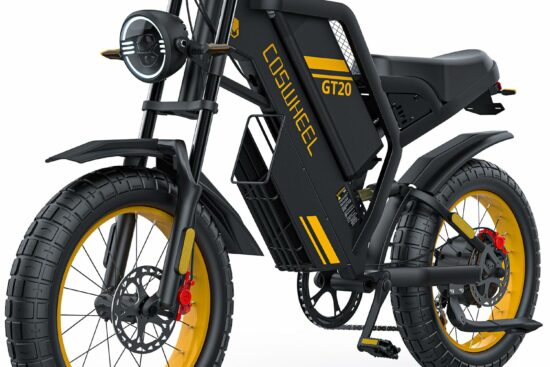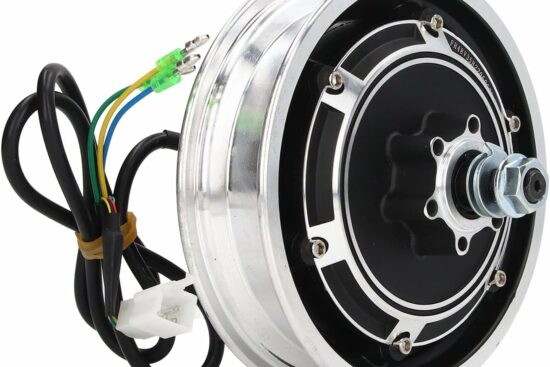
Electric bicycles, known as e-bikes, are increasingly becoming a preferred mode of transportation for individuals seeking an eco-friendly, efficient, and enjoyable way to travel. At the heart of an e-bike’s capability is its battery technology, which has seen substantial advancements over the years. As the demand for e-bikes grows, so does the push for batteries that charge faster, last longer, and are lighter and safer. Innovation in this field is continuous and essential to the evolution of e-bike performance, with manufacturers and researchers achieving notable breakthroughs that promise to enhance the riding experience for consumers.
In the realm of battery chemistry, efforts are aimed at increasing energy density which allows for greater range without adding additional weight. Solid-state battery technology, which replaces the liquid electrolyte found in traditional lithium-ion batteries with a solid, is among the revolutionary developments in e-bike battery technology. These solid-state batteries present various advantages, including improved safety and potentially longer life spans. Moreover, advancements in battery design and battery management systems are leading to more intelligent, integrated solutions that not only improve the physical form of the batteries but also the efficiency, reliability, and longevity of the power they provide to e-bikes.
Key Takeaways
- E-bike battery technology is crucial for enhancing the performance and appeal of e-bikes.
- Solid-state batteries represent a significant innovation in energy density and safety.
- Intelligent battery management systems contribute to improved efficiency and longevity.
Innovations in Battery Chemistry
https://www.youtube.com/watch?v=Zofx59CLb4A&embed=true
Recent advancements in e-bike battery technology are paving the way for more efficient and long-lasting rides. Two specific innovations, solid-state batteries and lithium-sulfur batteries, are at the forefront of this wave, promising significant improvements in energy density and safety.
Solid-State Batteries
Solid-state batteries replace the liquid electrolyte found in traditional lithium-ion batteries with a solid counterpart. This change offers multiple benefits:
- Increased Safety: They are less prone to catching fire.
- Higher Energy Density: This can potentially lead to longer battery life.
Researchers are focused on overcoming current manufacturing challenges to make solid-state batteries a practical alternative for e-bike applications.
Lithium-Sulfur Batteries
Lithium-sulfur (Li-S) batteries are another emerging technology that could revolutionize e-bike battery systems:
- Lightweight: They are lighter than traditional lithium-ion batteries, which can result in a lighter e-bike.
- Higher Energy Potential: Li-S batteries have a higher theoretical energy density.
Despite these advantages, lithium-sulfur batteries currently face longevity issues, which innovators are striving to resolve to harness their full potential for e-bike use.
Advancements in Battery Design and Management
https://www.youtube.com/watch?v=k1N2LyXtK-k&embed=true
E-bike battery technology is evolving with a focus on modularity for easy swapping and smart management systems to enhance performance and longevity.
Battery Modularity and Swapping
Manufacturers are introducing modular battery designs that allow for convenient swapping, reducing downtime during charging. This approach enables users to quickly exchange depleted batteries with charged ones, facilitating longer rides without the wait. Some designs are tailored to be universally compatible, permitting their use across various bike models.
Smart Battery Management Systems
Smart Battery Management Systems (BMS) have become essential in preventing overcharging, balancing charge across cells, and monitoring battery health. Innovations in BMS contribute to increased battery life and improved safety by using data to optimize charging cycles and power output. Advanced BMS are now capable of predicting battery lifespans and suggesting maintenance to preemptively address wear and tear.
Frequently Asked Questions
https://www.youtube.com/watch?v=UnGgiSSgsJ0&embed=true
As electric bikes become more popular, advancements in battery technology are playing a critical role in enhancing their appeal and performance. These advancements include improvements in energy density, charge times, and safety measures.
What are the latest developments in solid-state batteries for electric bikes?
Solid-state batteries for electric bikes represent a significant step forward, offering higher energy density and increased safety. An example of progress in this area includes researchers working with Dahn Lab and Tesla to develop new battery compositions that promise better performance and longevity.
How do lithium-ion battery advancements affect the safety and performance of electric bikes?
Lithium-ion battery advancements continue to improve electric bikes by enhancing their safety and performance. Improved battery management systems, like those from Bosch eBike Systems, protect against overcharging and overheating, leading to a more reliable and safer cycling experience.
Which manufacturers are leading in electric bike battery technology?
Manufacturers are continuously innovating to lead in electric bike battery technology. Companies like Tesla are involved in the research and development of novel battery compositions, which could soon be seen in products like Zen Ebikes.
What innovations have extended the lifespan of e-bike batteries?
Researchers have debuted findings of a new battery composition with improved energy density and charge time, approaching a life expectancy of 100 years. These innovations point towards significantly extended lifespans for e-bike batteries.
How do the emerging battery technologies compare to conventional lithium-ion ebike batteries?
Emerging battery technologies offer a myriad of benefits compared to conventional lithium-ion batteries, including higher energy density, faster charging capabilities, and potentially longer battery life. Each of these attributes contributes to a greater overall range and performance for electric bikes.
What considerations should consumers have when looking for replacement batteries for electric bikes?
When searching for replacement batteries, consumers should consider the compatibility with their current e-bike, the manufacturer’s reputation, and any advancements in technology that could offer improved performance or safety. They should also be aware that newer technologies may come at a higher cost but could provide better longevity and efficiency.




















